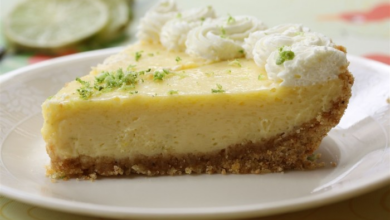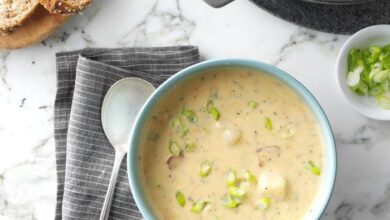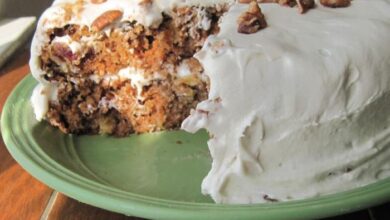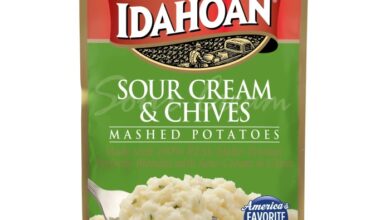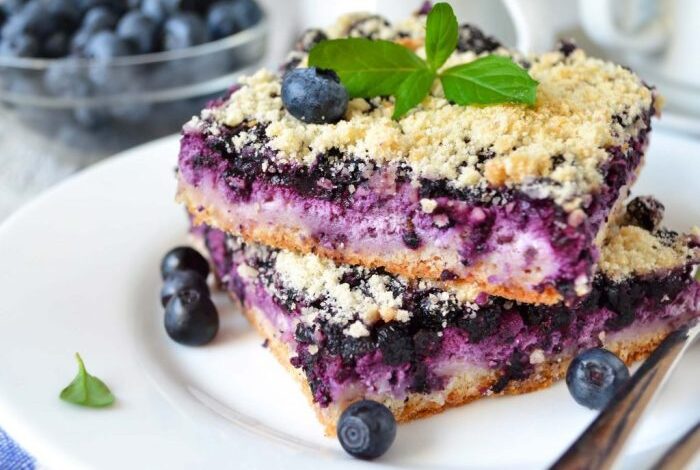
Blueberry Pudding with Hard Sauce: A Classic Comfort Food
Blueberry pudding with hard sauce is a classic comfort food that has been enjoyed for generations. This delightful dessert features a creamy, blueberry-filled pudding topped with a rich, buttery sauce. The combination of sweet and tart flavors, along with the contrasting textures of the smooth pudding and the crumbly sauce, creates a truly satisfying culinary experience.
The origins of blueberry pudding and hard sauce can be traced back to the early days of American colonial history. Blueberries, native to North America, were a staple ingredient in many early desserts. Hard sauce, a simple mixture of butter, sugar, and sometimes liquor, was a popular accompaniment to puddings and other sweet treats.
Over time, these two dishes evolved into the beloved dessert we know today.
History and Origin
Blueberry pudding and hard sauce, though seemingly simple desserts, have a rich history interwoven with culinary traditions and cultural influences. Their origins can be traced back to different parts of the world, each contributing to their unique flavors and preparations.
Origins of Blueberry Pudding
Blueberry pudding, in its essence, is a testament to the resourceful use of seasonal ingredients. Its roots lie in the culinary traditions of various cultures, each with its own interpretation of this simple yet satisfying dessert. The use of blueberries in desserts dates back centuries.
In North America, Native American tribes, particularly those residing in the northeastern regions, have long utilized blueberries in their diet. They incorporated the fruit into various dishes, including puddings and pies, reflecting their deep understanding of the land and its bounty.
The arrival of European settlers brought new culinary techniques and ingredients, further shaping the evolution of blueberry pudding. The concept of a “pudding” itself, however, finds its origins in ancient Roman cuisine. The Romans used the term “pudding” to describe a variety of savory dishes, often consisting of meat, grains, and spices.
Over time, the term evolved to encompass sweet desserts, particularly those featuring a creamy, custard-like consistency.
Origins of Hard Sauce
Hard sauce, a classic accompaniment to puddings and other desserts, boasts a history that intertwines with the development of sugar and its various forms. The use of sugar, a key ingredient in hard sauce, has its roots in ancient India.
Sugarcane, the source of sugar, was cultivated in India for centuries before it spread to other parts of the world. As trade routes expanded, sugar became a prized commodity, eventually reaching Europe and contributing to the evolution of European cuisine.The concept of a “hard sauce” itself emerged in England during the 17th century.
This sauce, typically made with butter, sugar, and sometimes liquor, was a popular accompaniment to puddings and other desserts. It provided a contrasting texture and flavor, enhancing the overall dining experience.Hard sauce, over time, became a staple in English culinary tradition, and its popularity spread to other parts of the world, including North America, where it found a place in the dessert repertoire.
Ingredients and Variations
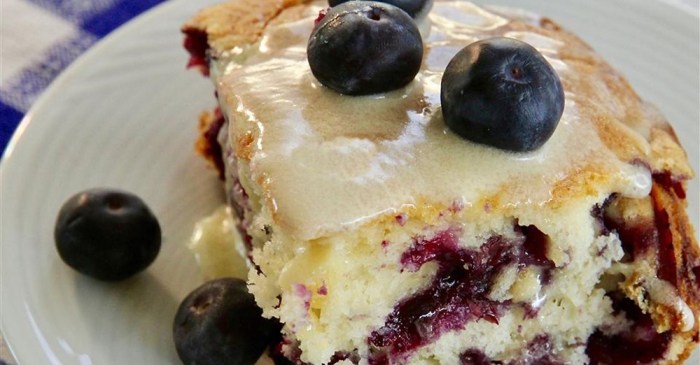
Blueberry pudding and hard sauce are classic desserts that have been enjoyed for generations. While the traditional recipe is simple and straightforward, there are numerous variations and alternative ingredients that can be used to personalize this delightful dish.
Key Ingredients
The basic ingredients for blueberry pudding are blueberries, cornstarch, sugar, and milk. These ingredients combine to create a smooth and creamy pudding with a delicate blueberry flavor. The hard sauce, which is typically served on top of the pudding, is made with butter, sugar, and a touch of flavoring, such as vanilla extract or rum.
Regional Variations
Blueberry pudding recipes can vary depending on the region or culture. For example, some recipes may call for additional ingredients such as lemon zest, cinnamon, or nutmeg to enhance the flavor profile. In some regions, blueberry pudding is made with a custard base instead of cornstarch, resulting in a richer and more decadent dessert.
Alternative Ingredients
While the traditional ingredients are essential for the classic blueberry pudding experience, there are several alternative ingredients that can be used to create variations or accommodate dietary restrictions.
- Sweeteners:Instead of white sugar, you can use alternative sweeteners such as honey, maple syrup, or agave nectar to adjust the sweetness level and add a unique flavor profile.
- Milk:For those with dairy allergies or preferences, almond milk, soy milk, or coconut milk can be used as a substitute for cow’s milk.
- Thickening Agent:If you prefer a thicker pudding, you can use tapioca starch or arrowroot powder instead of cornstarch.
- Flavorings:Lemon zest, orange zest, cinnamon, nutmeg, or even a pinch of salt can be added to the pudding for a more complex flavor.
Hard Sauce Variations
Hard sauce is a versatile topping that can be customized to complement the blueberry pudding.
Blueberry pudding with hard sauce is a classic comfort food, but it’s also surprisingly versatile. You can dress it up with a sprinkle of toasted pecans or a dollop of whipped cream, or even add a touch of citrus zest for a brighter flavor.
And if you’re looking for something a little more adventurous, check out this recipe for daddys if theyda had this at the alamo we wouldha won texas chili , which uses a blend of spices and chiles to give the pudding a real kick.
No matter how you choose to enjoy it, blueberry pudding with hard sauce is sure to be a hit.
- Flavorings:In addition to vanilla extract, you can add rum, brandy, or even a touch of orange zest to the hard sauce for a more complex flavor.
- Texture:For a lighter texture, you can use whipped cream or sour cream instead of butter.
- Sweeteners:Powdered sugar or brown sugar can be used instead of granulated sugar for a different sweetness level.
Cooking Techniques: Blueberry Pudding With Hard Sauce
Blueberry pudding and hard sauce are relatively simple desserts to prepare, requiring basic cooking techniques that can be mastered by novice cooks. The process involves baking the pudding, which allows the blueberries to release their juices and thicken the custard, while the hard sauce is typically prepared by simmering butter, sugar, and alcohol until it reaches a smooth and creamy consistency.
Blueberry pudding with hard sauce is one of those classic desserts that always brings back happy memories. It’s so comforting and delicious, especially when served warm with a scoop of vanilla ice cream. Speaking of warm and comforting, I recently made a cheesy ham and asparagus bake that was absolutely divine! It was the perfect combination of creamy, cheesy, and savory, and it definitely hit the spot.
I think I’ll have to try making that cheesy ham and asparagus bake again soon, maybe even with a side of blueberry pudding with hard sauce for a complete meal!
Baking the Blueberry Pudding
Baking is the primary cooking technique used for the blueberry pudding. This method allows the blueberries to release their juices, which thicken the custard and create a rich, flavorful sauce. The baking process also helps to soften the blueberries and create a smooth, creamy texture.
The key to baking a perfect blueberry pudding is to maintain the correct temperature and baking time. The pudding should be baked in a preheated oven at a temperature of 350°F (175°C). Baking time will vary depending on the size of the baking dish and the amount of pudding being prepared.
A well-baked blueberry pudding should have a set custard base and a bubbly, slightly thickened blueberry sauce on top.
Simmering the Hard Sauce
Simmering is the primary cooking technique used for the hard sauce. This method involves gently heating the ingredients over low heat, allowing the butter to melt and the sugar to dissolve, creating a smooth and creamy sauce. The key to simmering a perfect hard sauce is to maintain a low heat and stir continuously to prevent the sauce from scorching or sticking to the bottom of the pan.
The sauce should be simmered until it reaches a thick and creamy consistency, but not so thick that it becomes too stiff.
The simmering process should be done slowly and carefully, as the sauce can quickly burn if the heat is too high.
Whisking the Hard Sauce, Blueberry pudding with hard sauce
Whisking is an essential technique used for the hard sauce. This method involves using a whisk to incorporate air into the sauce and create a smooth, velvety texture. The key to whisking a perfect hard sauce is to whisk continuously and vigorously until the sauce is completely smooth and lump-free.
This process also helps to dissolve any sugar crystals and create a uniform texture.
Whisking is crucial for creating a smooth and creamy hard sauce that complements the blueberry pudding perfectly.
Blueberry pudding with hard sauce is a classic comfort food, but sometimes I crave something a little more savory. That’s when I turn to uova in purgatorio eggs in purgatory , a simple but satisfying Italian dish of eggs poached in a spicy tomato sauce.
It’s the perfect balance of sweet and savory, and I always feel satisfied after a bowl of either. Of course, nothing beats a warm bowl of blueberry pudding with hard sauce on a cold winter night.
Flavor Profiles and Pairings
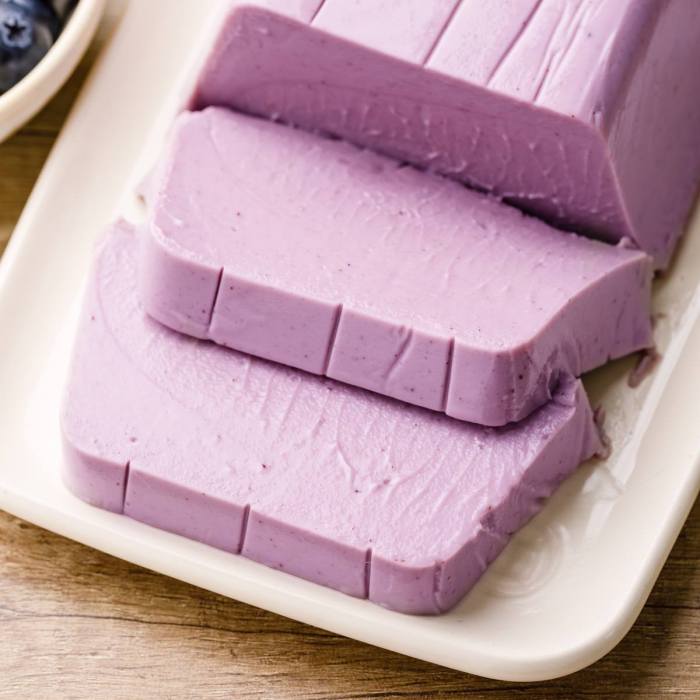
Blueberry pudding and hard sauce create a delicious and classic dessert combination, offering a delightful interplay of sweet and tangy flavors.
Flavor Profiles
Blueberry pudding typically features a sweet and slightly tart flavor profile. The blueberries provide a bright, juicy sweetness, while the pudding base adds a creamy and comforting element. Hard sauce, on the other hand, boasts a rich and buttery flavor, often enhanced with a touch of rum or brandy for an extra layer of complexity.
The combination of these contrasting flavors creates a harmonious balance that is both satisfying and refreshing.
Flavor Pairings
The sweet and tangy blueberry pudding and the rich and buttery hard sauce pair well with various additional flavors, enhancing the overall taste experience. Here are some suggestions for enhancing the flavor profile:
Spices
- Cinnamon: Adds warmth and a touch of spice, complementing the sweetness of the blueberries and the richness of the hard sauce.
- Nutmeg: Introduces a subtle, aromatic note that enhances the creamy texture of the pudding.
- Ginger: Offers a warm and slightly spicy kick, adding a unique dimension to the dessert.
Nuts
- Pecans: Their buttery flavor and crunchy texture complement the richness of the hard sauce and add a satisfying textural contrast.
- Almonds: Offer a slightly bitter note that balances the sweetness of the blueberries and the richness of the hard sauce.
- Walnuts: Their earthy flavor and crunchy texture provide a unique dimension to the dessert.
Fruits
- Raspberries: Their tartness complements the sweetness of the blueberries, while their delicate flavor adds a subtle complexity.
- Strawberries: Their bright and juicy flavor enhances the sweetness of the blueberries and provides a refreshing contrast to the richness of the hard sauce.
- Blackberries: Their bold and slightly tart flavor adds depth and complexity to the dessert.
Serving and Presentation
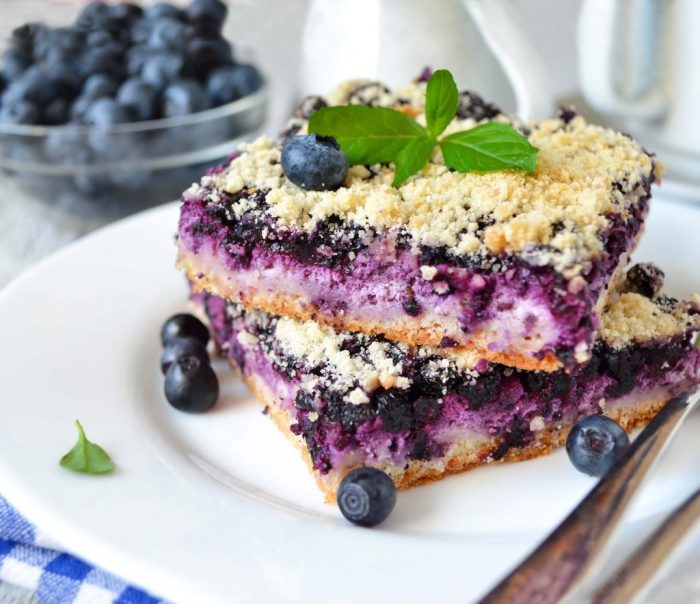
Blueberry pudding with hard sauce is a classic dessert that can be served in various ways. It is a versatile dish that can be enjoyed both warm and cold.
Traditional Serving
The traditional way to serve blueberry pudding with hard sauce is to place a generous portion of the pudding in a bowl or ramekin. The hard sauce is then served separately in a small dish or bowl. Guests can spoon the pudding and sauce onto their plates, allowing them to customize the amount of sauce they desire.
Creative Plating and Presentation Techniques
While the traditional method is simple and effective, there are many ways to elevate the presentation of blueberry pudding with hard sauce. Here are a few creative ideas:
- Individual Ramekins: Instead of serving the pudding in a large bowl, individual ramekins can be used for a more elegant presentation. The pudding can be topped with a dollop of hard sauce and a sprinkle of fresh blueberries for a beautiful and flavorful finish.
- Layered Dessert: For a visually appealing and layered dessert, the blueberry pudding can be alternated with layers of vanilla wafers or crushed graham crackers. Each layer can be topped with a generous amount of hard sauce for a decadent and flavorful treat.
- Garnished with Fresh Herbs: A sprig of fresh mint or a few leaves of basil can add a touch of freshness and color to the dessert. The herbs can be placed on top of the pudding or woven into the hard sauce for a visually appealing garnish.
Table Layout
When designing a table layout for blueberry pudding with hard sauce, consider the following elements:
- Tablecloth and Placemats: A white tablecloth with coordinating placemats can create a classic and elegant setting. A patterned tablecloth or placemats can add a touch of personality to the table.
- Centerpiece: A simple centerpiece of fresh flowers or a bowl of fruit can enhance the overall ambiance of the table. The centerpiece should complement the color scheme of the table setting and the dessert.
- Serving Dishes: The blueberry pudding can be served in a large bowl or in individual ramekins. The hard sauce should be served in a separate dish or bowl. It’s important to use serving dishes that are appropriate for the amount of dessert being served.
- Cutlery and Glasses: Choose cutlery and glasses that are complementary to the table setting. For example, a simple set of silver cutlery and clear glass tumblers can create a classic and elegant look.
Culinary Significance
Blueberry pudding and hard sauce, though seemingly simple desserts, hold a special place in culinary history and traditions. Their origins intertwine with cultural practices and evolving culinary techniques, making them more than just a sweet treat.
Cultural Significance
These desserts have become synonymous with comfort food and nostalgic memories for many. They are often associated with family gatherings, holidays, and special occasions.
- In the United States, blueberry pudding and hard sauce are particularly popular in New England, where blueberries are abundant and the dish has been enjoyed for generations.
- These desserts are often served during Thanksgiving and Christmas, adding a touch of tradition and warmth to festive celebrations.
- In some cultures, blueberry pudding is seen as a symbol of hospitality and generosity, reflecting the effort and care put into preparing a homemade dessert.
Incorporation into Traditions
The inclusion of blueberry pudding and hard sauce in special occasions highlights their cultural significance:
- Family Gatherings:These desserts are often served at family gatherings, potlucks, and picnics, bringing people together and fostering a sense of community.
- Holiday Celebrations:They are traditional components of Thanksgiving and Christmas feasts, representing the warmth and joy of these special occasions.
- Regional Festivals:In blueberry-producing regions, these desserts are often featured at local festivals and celebrations, showcasing the area’s agricultural bounty.
Role in Culinary History and Evolution
Blueberry pudding and hard sauce have evolved alongside culinary techniques and ingredients:
- Early Recipes:Early recipes for blueberry pudding often involved simple ingredients like blueberries, sugar, and milk, reflecting the limited availability of ingredients and cooking methods in the past.
- Evolution of Techniques:Over time, the addition of spices, butter, and other ingredients, along with the development of new cooking methods, resulted in variations and refinements of these desserts.
- Modern Interpretations:Today, chefs and home cooks continue to experiment with new flavors and textures, creating modern interpretations of blueberry pudding and hard sauce, while still respecting the traditional essence of these classic desserts.

